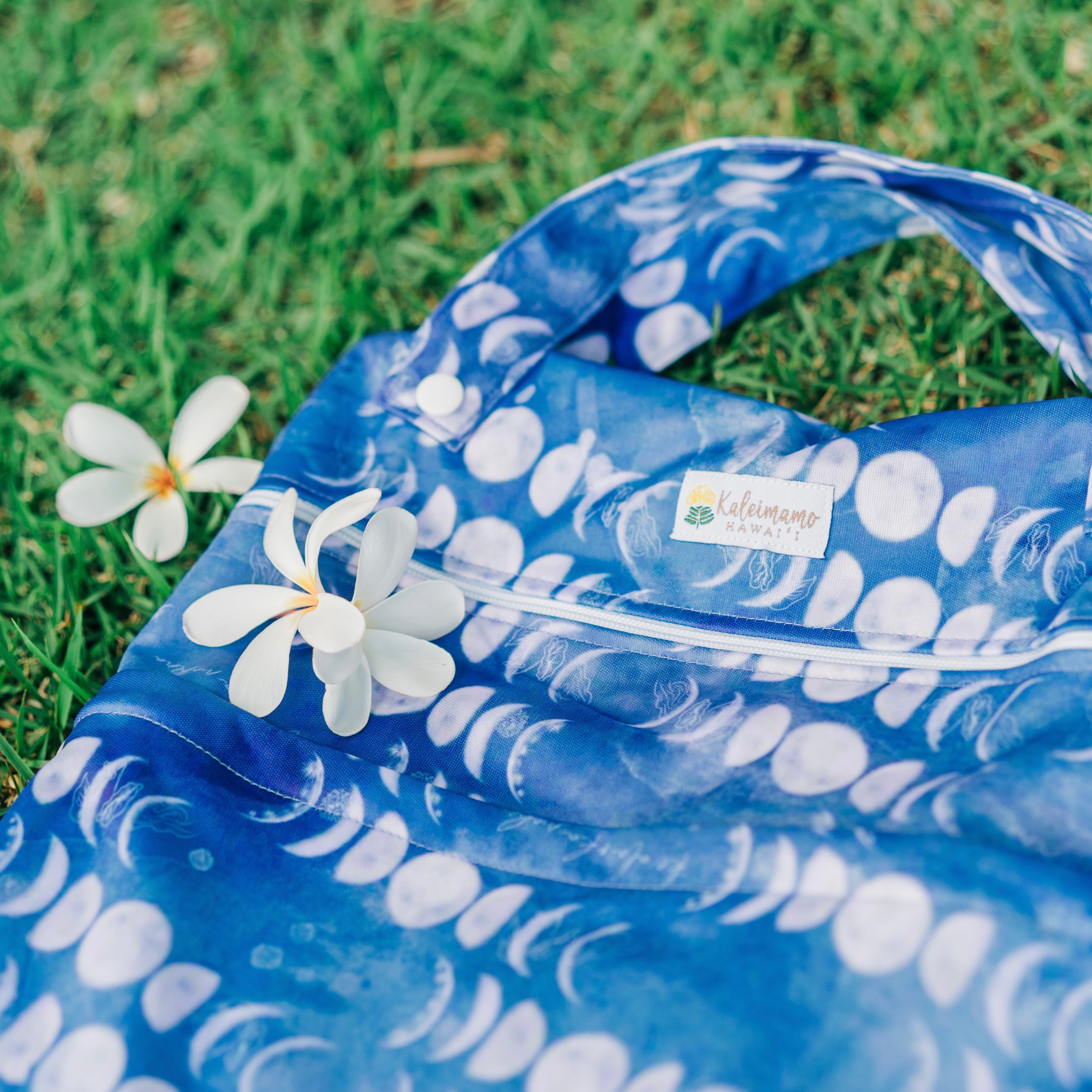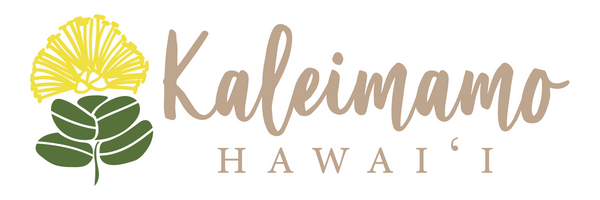Collection: Ke Ala o ka Mahina Polū
No products found
Use fewer filters or remove all
About this print
Ke Ala o ka Mahina
The traditional Hawaiian calendar is based upon the phases of the moon, each with its own name and associated activities. The phases featured in this design include Hoaka, Kū Lua, ʻOle Kū Kolu, Hōkū, ʻOle Kū Lua, Kāloa Pau, and Lono. Hawaiians believe that certain activities are appropriate when the moon is in a certain phase. If you look closely, the moon phases here showcase the preferred time to plant and grow kalo (taro) and hala (pandanus), gather wana (sea urchins), and signal when the tide is low and seas are calm.

Hawaiians observed the lunar cycle and correlated it to cycles observed on earth, such as the tides and ideal times for fishing and planting. Equally important are the associated times for resting. Based on their observations, Hawaiians developed a 12-month lunar calendar, each month with 30 nights. Every month begins with the new moon, Hilo. To ensure the seasons correspond to the movement of the sun, the calendar is periodically adjusted.
Memorizing the names of each night is a challenge. To make it easier, renowned Hawaiian scholar Mary Kawena Pukui composed a song and hand game:
Kamaliʻi ʻike ʻole i ka helu pō
Muku nei, muku, ka malama
Hilo nei, kau ka Hoaka
ʻEhā Kū, ʻEhā ʻOle;
Huna, Mohala, Hua, Akua,
Hoku, Māhealani, Kulu;
ʻEkolu Lāʻau, ʻEkolu ʻOle, ʻEkolu Kāloa;
Kāne, Lono, Mauli, Pau
Children who do not know the moon phases
Muku is here, Muku the moon;
Hilo is next, then Hoaka
Then the four nights of Kū, followed by the four nights of ʻOle;
Huna, Mohalu, Hua, and Akua,
Hōkū, Māhelani, Kulu;
Then the three nights of Lāʻau,
Three nights of ʻOle,
And the three nights of Kāloa;
Kāne, Lono, Mauli, Pau


Hawaiians’ lunar observations are also tied to our traditional spiritual beliefs. Hina-i-ka-mālama (Hina for short) is the Hawaiian goddess of the moon. Like the activities associated with the various moon phases, Hina is also connected with motherhood, the ocean, fishing, food plants, and kapa (bark cloth) making.
For more resources on the Hawaiian moon calendar, visit Papahana Kuaola, The Kohala Center, and Western Pacific Regional Fishery Management Council.
This print was created in collaboration with and designed by Kalei Victoria (@designsbykaleivictoria on IG).
